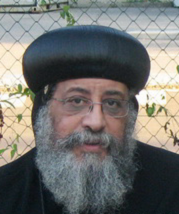It has been more than a year since the novel coronavirus (COVID-19) began spreading around the world.
The global pandemic, through its devastating health impacts and resultant lockdowns, has damaged economies, destroyed jobs and livelihoods, and reversed development gains. It also still threatens to push up to an additional 115 million people back into extreme poverty in 2020 alone.
As the COVID-19 crises swept through to claim the lives of over 2.52 million people across the world, the global economy shrank by 4.3%, over three times more than during the global financial crisis of 2009, with trillions of dollars wiped from global balance sheets.
Disruption expands into global commerce, growing food insecurity and education, taking away jobs from a massive 500 million people.
The impacts on the world’s most vulnerable people have been enormous. Young people, especially young women and girls, took the blunt of the pandemic and witnessed increase in sexual and gender-based violence.
The pandemic impacted the social and emotional fabric of the livelihood of countless people worldwide and that includes those of Egypt. Progress to improve the lives of people everywhere, through the achievement of the 17 Sustainable Development Goals (SDGs), could be derailed.
All these challenges have exposed the shaky foundations on which our economy is built and left us with many questions around the future of our world – what our world will look like in the next 15 years.
However, the COVID-19 pandemic, like any disruptive force, presents us with an opportunity to re-imagine a better future through our response—a fairer and more equal world. The 2030 Agenda for Sustainable Development remains the best framework for such a future.
Now, as we stride to build back better, our focus must be placed on fostering inclusive and sustainable growth, and meeting the needs for decent jobs, social protection floors, and connectivity for a green transition and to spur innovation—leaving no one behind.
Especially, recovering better requires drawing lessons from the current pandemic to support and bolster the SDGs.
These lessons call for investing in green transition, including smart agriculture, renewable energy and sustainable infrastructure. This would ensure the ability to bounce back better from the current socio-economic crisis, but also to prepare for the threats posed by climate change.
While multidimensional efforts by all stakeholders are needed to build back better, I would like to highlight one particular segment: the accelerated role played by digital technology during and after the COVID-19 outbreak.
The digital transformation has enabled people to connect during lockdowns, and economies to thrive and digital industries to grow. Last year, the vast majority of social and economic interactions took place virtually, and digital technology served as a gateway to learn, live, and stay connected.
Here in Egypt, we have seen a significant shift to digital platforms by both individuals and businesses. The sector of communications and information technology grew tremendously with investments in developing digital capabilities and connectivity, especially in freelancing and remote-work skills.
In many ways, digital transformation came in to rescue all corners of the economy, such as the service sector, to remain resilient during the pandemic. At the individual level, the habits, attitudes and behaviours of many Egyptians moved the needle with growing demands for digital platforms to work, study, shop and connect virtually.
The Egyptian Government is promoting the shift towards digital and knowledge-based economy through boosting digital transformation policies and practices. These are supported by the acceptance and willingness towards more access to digital environment, clearly shown in the amount of new online services, introducing remote working and online learning.
The UN country team in Egypt has worked closely with the government and other stakeholders to prioritise digital transformation in our response and recovery plans, underlining that “the new normal is digital”.
Concretely, multiple UN agencies in Egypt including UNICEF, UNDP, UN Women, UNESCO and others have supported different national policies, programmes and projects dedicated to digital transformation.
These include initiatives supporting online learning in schools and universities, promoting the potential of e-commerce and the digital economy, and supporting young men and women’s socio-economic empowerment through different modalities, all of which stemmed from its COVID-19 socio-economic response plan.
Our activities are also anchored on the principle of leaving no one behind to improve access for disadvantaged people, for example, girls and women, persons with disabilities and those living in extreme poverty, hard-to-reach populations and many others.
As we climb up the digital transitional ladder, we must make sure about equal access to digital education and skills development.
In essence, the overall recovery effort must bring everyone along, and we cannot achieve that without bridging the digital divide. However, many citizens around the world remain deprived from digital accessibility. They are denied opportunities to study, communicate, shop, work and participate in much of our modern society.
During his closing speech at the Internet Governance Forum in December, UN Secretary-General Antonio Guterres urged all governments to “make sure that the response and recovery plans include increasing digital connectivity in a way that is affordable, safe and inclusive”.
The digital inclusion will help countries get back on a sustainable development pathway. And accelerating digital transition for inclusive development in sectors such as e-education, e-governance, e-justice, e-health and e-commerce for livelihoods will help connect individuals to opportunities and lead to job creation, accelerated growth, and reduced vulnerability to catastrophes like COVID-19.
As we chart a course for the next 15 years, all of us – the government, international organizations, private sector, civil society, and development partners – must play a crucial role in ensuring that Egypt recovers better, implementing the vision of the SDGs during this Decade of Action. Unlocking access to digital services, ICT infrastructure and affordability will pave the way.

